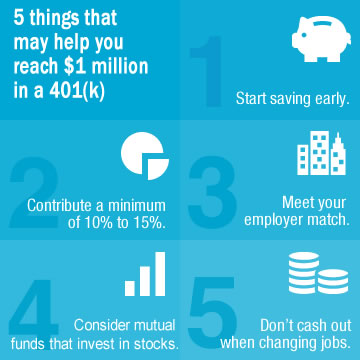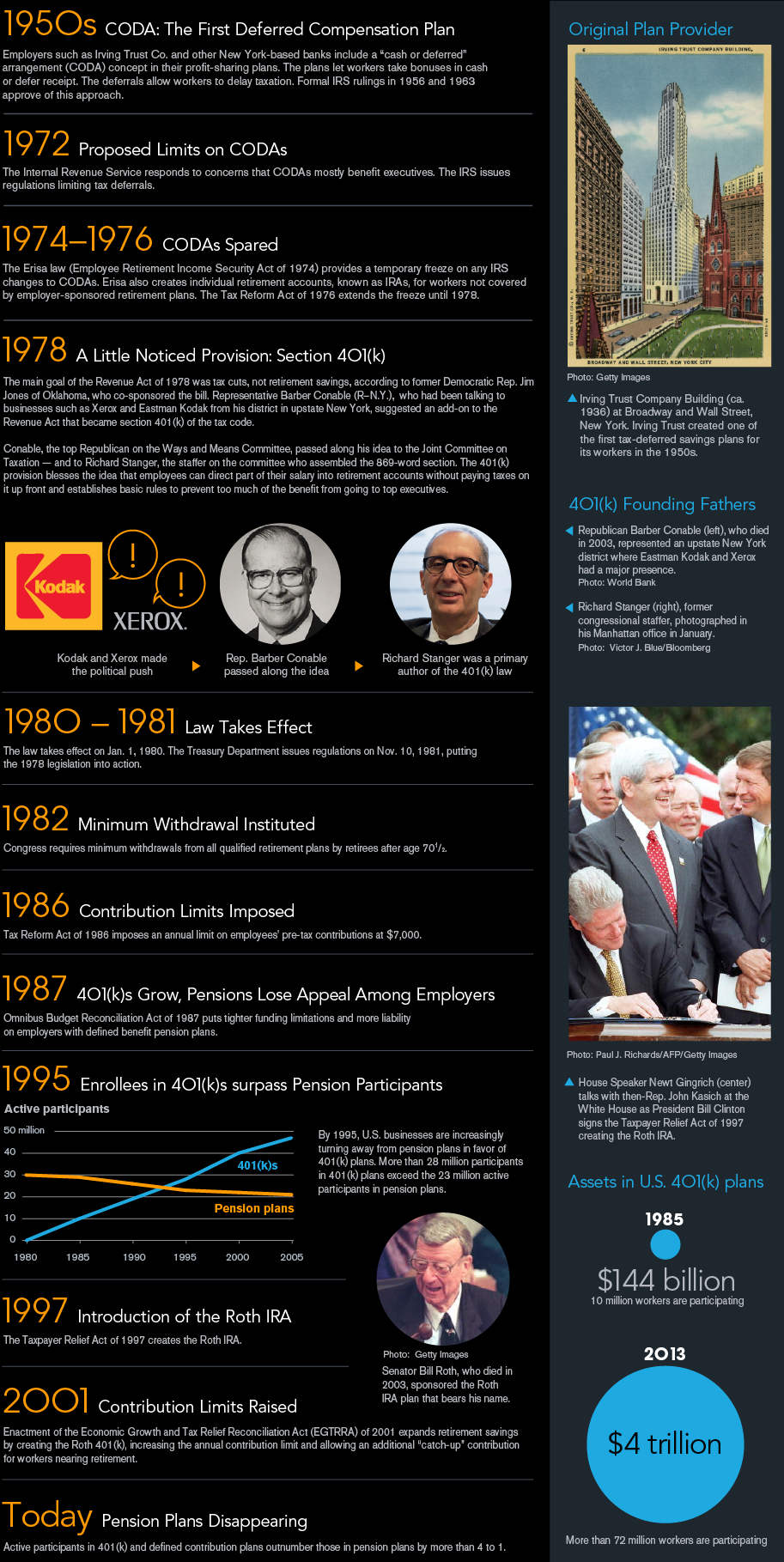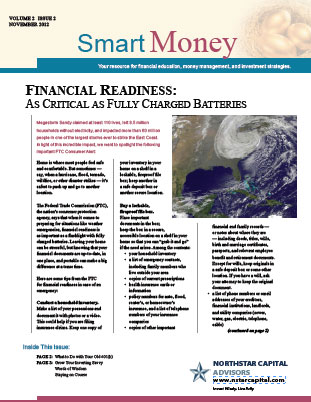How to be a 401(k) Millionaire
 Fidelity Investments, one of the largest retirement account administrators in the U.S., published a study that analyzed the characteristics of their 401(k) account holders who have amassed more than $1 million but make less than $150,000.
Fidelity Investments, one of the largest retirement account administrators in the U.S., published a study that analyzed the characteristics of their 401(k) account holders who have amassed more than $1 million but make less than $150,000.
Here are 5 key lessons:
#1 — Start saving early
Beyond the obvious fact that the longer you save, the more you’ll potentially accumulate, contributing steadily over 30 to 40 years is especially beneficial in a tax-advantaged workplace retirement savings plan.
#2 — Contribute a minimum of 10% to 15%
Contributing 10% to 15% might sound like a lot, but that amount is meant to include contributions from your employer—such as your company match or profit sharing.
#3 — Meet your employer match
You’ve probably heard it many times, but it bears repeating that failing to contribute up to the full amount of a company match is like turning down “free” money.
#4 — Consider mutual funds that invest in stocks
Historical data suggests that a diversified portfolio of stocks can deliver higher returns than bonds or other fixed income investments over time.
#5 — Don’t cash out when changing jobs
Taking a distribution from your 401(k) account when you change jobs is hardly ever a good idea. It could trigger significant tax liability and early withdrawal penalties. When you take money out of your 401(k), you lose the opportunity for it to grow.
Source: Fidelity
















